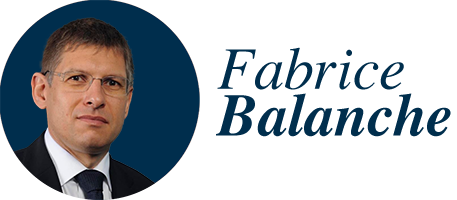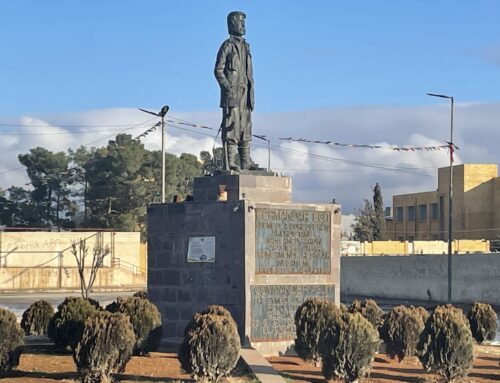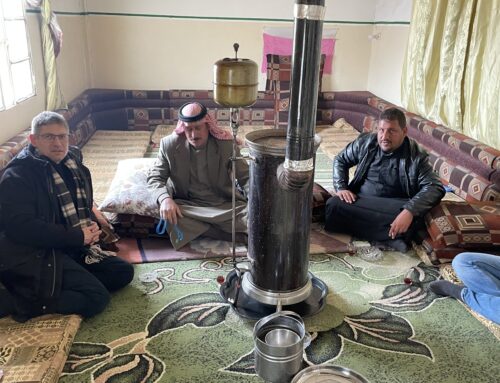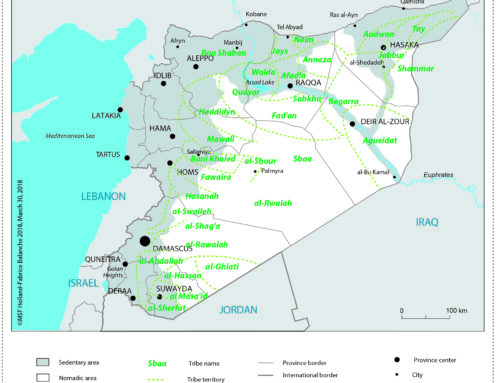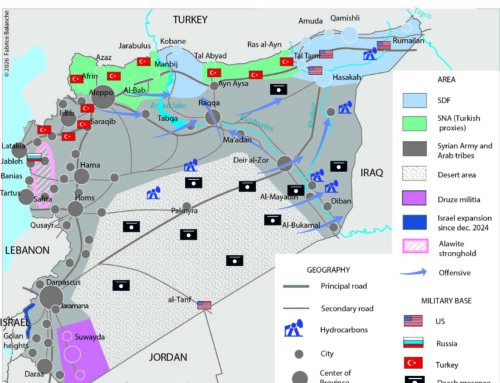ERBIL, Kurdistan Region – Syria is moving toward an Islamic republic shaped by dominant Sunni conservative forces, warned a French expert on Wednesday, adding that the only way to prevent this from happening is the introduction of a federal system to the country.
Published on Rudaw, 19 November 2025
“We need federalism in Syria because probably it’s the only way to avoid an Islamic republic in Syria because I think we could have an Islamic republic in Syria,” French academic Fabrice Balanche said during a panel at the Middle East Peace and Security (MEPS) in Duhok.
Balanche, an associate professor and research director at the University of Lyon 2, stated that “what I have seen in Syria in January and last September when I was in the country, [is] that we are on the way of an Islamic republic because this regime is not inclusive.”
Following the fall of longtime Syrian dictator Bashar al-Assad last year, the new authorities in Damascus have come under repeated criticism for their treatment of minority groups. After his appointment as Syria’s interim President in late January, Ahmed al-Sharaa said he would respect the rights of all ethnic and religious groups.
Since Sharaa’s term, Syria’s Kurdish, Alawite and Druze communities have been advocating for decentralization, citing decades of repression under the Assad-led Baath regime and the violence against minorities that followed the regime’s collapse.
While the transitional government initially rejected any form of decentralization, it later softened its tone. Najeeb Ghadban, Advisor to Syrian Foreign Minister Asaad al-Shaibani, confirmed to Rudaw in early October that “there is openness” in Damascus to the idea of decentralization.
Balanche said the structure of governance reflects past authoritarian patterns. “The master changed, but the system is the same,” he said, adding that “a new group coming from Idlib” now rules Syria.
“We still have many people who believe in Daesh [ISIS], who believe in al-Qaeda, who are in security forces because when you cross a checkpoint… you see al-Qaeda logo on the security forces,” he said.
Sharaa’s now-dissolved Hayat Tahrir al-Sham (HTS) was a former al-Qaeda affiliate.
Syria joined the global coalition against the Islamic State (ISIS) earlier this month following Sharaa’s historic meeting with the US President Donald Trump at the White House.
Balanche described Sharaa’s interest in joining the coalition as “a tactical engagement” meant to weaken US support for the Kurdish-led Syrian Democratic Forces (SDF), which controls northeast Syria (Rojava).
On the economic situation, Balanche said Syria’s expectations of Gulf-funded reconstruction are misplaced. He dismissed government announcements of multibillion-dollar investments as “a joke,” saying the country, unlike Iraq, lacks the oil revenues and functioning infrastructure required for recovery.
“People in Syria are expecting this wealth coming from the Gulf,” he said. “When they see that nothing is coming, they will be very disappointed and we will see demonstration and frustration,” he added.
